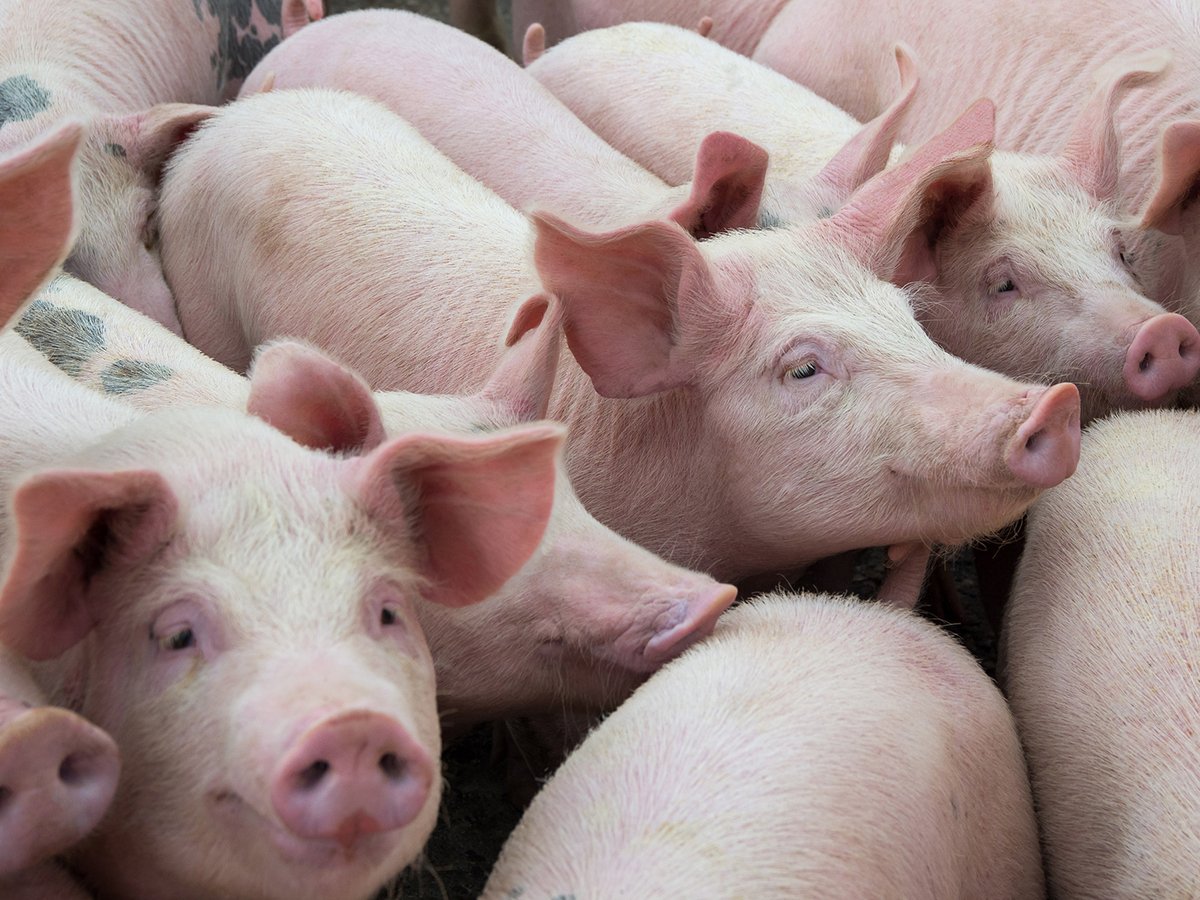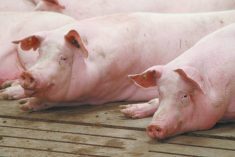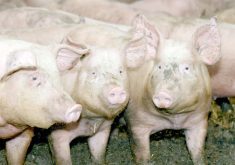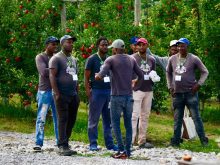WINNIPEG — Livestock groups and meat processors say the federal government and its response to the housing shortage is harming Canada’s red meat industry.
In a joint statement released May 29, the Canadian Meat Council, the Canadian Cattle Association, the National Cattle Feeders’ Association and the Canadian Pork Council asked the feds to restore the previous structure of the Temporary Foreign Worker Program.
“While we understand the federal government is seized with a housing shortage, temporary foreign workers are not the problem, representing only nine per cent of the temporary resident population,” the statement says.
Read Also

Quebec pork company calls for transparency around gene-edited pigs
Quebec-based pork company duBreton is calling for transparency around meats from gene-edited pigs on concerns that a lack of mandatory labelling will confuse consumers, and dilute certification claims. The organic sector is also calling for labelling rules.
In March, the federal ministers of immigration and employment — Marc Miller and Randy Boissonnault — announced that employers identified in the 2022 Workforce Solutions Road Map can have only 20 per cent of their workforce be temporary foreign workers, down from 30 percent, except for the construction and health care sectors.
The reduction was needed, the ministers said, because the labour market has changed in the last two years.
“With … declining job vacancies, the government is adjusting the (TFW) program to ensure the program continues to only be used in cases where there are no workers here in Canada that can fill the necessary role,” said the March news release from the feds.
That change, which came into effect May 1, could hurt the rural economy and farmers, said Rene Roy, Canadian Pork Council chair.
“If there’s a shortage of workers in the processing sector, it runs the risk that producers can’t ship their product to market,” he said.
“We need to help recruit more new Canadians to rural areas, and creating uncertainty defeats our efforts to convince people to come join our industry.”
Chris White, president of the Canadian Meat Council, was more direct in his criticism of the federal decision.
The feds are blaming the wrong people for Canada’s housing shortage, he said.
“The government decision to reduce the cap (to 20 per cent) did not consider the impact to food security data but was instead a knee-jerk reaction to a housing challenge that our industry is not responsible for.”
White went further in a March news release, saying the federal decision is “punitive.”
“Make no mistake, the decision to remove these supportive measures is punitive for the agriculture sector, including our meat processors…. (The feds) are undermining our sector’s ability to meet product supply requirements.”
The meat processing sector has argued for years that domestic workers aren’t willing to work at slaughter plants, especially facilities located in rural areas.
Therefore, companies depend on the TFW program to fill vacancies.
Besides the 30 to 20 per cent reduction, the government also changed the rules for the Labour Market Impact Assessment (LMIA).
Employers who want to hire a foreign worker must prove, using an LMIA, that no Canadian is available or interested in the position.
Under the new rules, employers will have to conduct an LMIA more often and possibly more thoroughly.
“LMIAs will be valid for six months (a decrease from 12 months) to ensure accurate labour market needs,” the feds said in March.
“Employers will need to explore every option before applying for an LMIA — including recruiting asylum seekers with valid work permits.”
Contact robert.arnason@producer.com
















